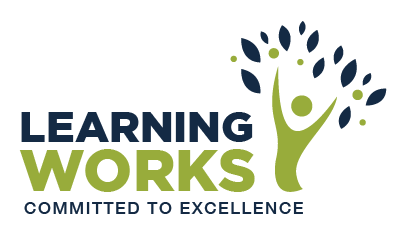Course Description
This course builds on existing knowledge and experience and is aimed at providing the student with advanced knowledge, skills and competences required to work and progress in the sport and exercise profession. The programme will draw upon the students’ experiences in sport and exercise settings to help provide a specific frame of reference for the study of human behaviour in sport and exercise settings. This programme gives students an overview of the key areas in sport and exercise psychology.
During the course students will also take time to discuss various case studies brought up by the lecturers and others they themselves may come across in their work.
Learning Outcomes
By the end of the course programme, students will be able to:
- Communicate more effectively with individuals under his/her care through the development of better communication and listening skills as well as basic counselling techniques.
- Work collaboratively with other practitioners and organisations in the sport and exercise setting.
- Work effectively across professional boundaries and develop professional networks.
- Understand better the needs and challenges of those participating in sport and exercise.
- Ensure confidentiality and dignity of individual throughout any activity and provide care and compassion in addressing individual’s needs and concerns.
- Reflect on personal knowledge, skills and practice for continuing professional development.
- Define and discuss major areas related to sport and exercise psychology.
- Demonstrate knowledge about human behaviour in sport and exercise.
- Apply theoretical knowledge to real world contexts.
- Recognise how exercise can help an individual’s psychological well-being.
- Develop the knowledge and skills necessary for team management-communication, leadership, team dynamics and motivational skills.
- Identify psychological challenges faced by individuals in sport and exercise.
- Practice in a way, which respects, promotes and supports.
- Apply a holistic approach in meeting the needs and preferences of Individuals.
- Attention to the detail of treatment and individual provision.
- Understand current legislation in the field and ensure practice is within legislative guidelines.
- Understand own responsibilities, and the responsibilities of others, relating to psychological health.
- Come up with own techniques that may aid learning/skills acquisition and enhanced performance.
- Undertake psychological skills training/learning in a professional manner.
- Understand methodologies for evaluating psychological issues in sport and exercise.
- Understand and implement continuous improvement measures and demonstrate better psychological characteristics and coping skills.
- Understand the impact that improving communication has on different individuals in a sport and exercise setting.
- Understand personal role and responsibilities in providing care/support.
Target Candidates
The Award is aimed at students who already possess a qualification in coaching, personal training, physiotherapy or similar and who are further interested in understanding the psychological factors in sport in order to enhance their own performance or of athletes they coach and to understand better the challenges participants in sport and exercise may face.
| Course Code | Duration | Credit Value | Next Intake | FT/PT |
|---|---|---|---|---|
| LW/S/001 | 3 months | 5 ECTS | August 2024 | PT |
| Contact Hours | Placement Hours | Self Study Hours | Assessment Hours | Total Learning Hours |
|---|---|---|---|---|
| 40 | 10 | 45 | 30 | 125 |
Mode of Training
This Award is delivered through a series of interactive teaching sessions with an emphasis on group activities. Case studies and work examples will be discussed throughout the course.
Assessment
Assignments, Case-Study, Evidence of Observation work, Team-building event, interview with an athlete.
Awarding Body
Learning Works
Lecturers
Course Structure
Module 1: Psycho-social Perspectives of Sport and Exercise (2 ECTS)
In this Unit, students will understand better that the benefits of sport and exercise are not only physical but psychological too. This unit is more focused on the practice of exercise and sports across all the population rather than elite athletes in particular. This Unit looks into the growth of the child/adolescent and age appropriate development patterns that are important for the coach to understand. The unit also delves into personality types and understanding how one may motivate different participants and the importance of building self-confidence in the individuals we work with in order to enhance their chances of success.
Module 2: Applied Sport Psychology (1 ECTS)
This Unit is focused on the theoretical and practical implementation of performance enhancing skills for athletes – from children to the elite. A look into the development of sport psychology since its inception and how psychology can aid performance in sport is discussed. The various areas of concern to the athlete and coach which include dealing with anxiety and arousal in sport and concentration will be understood in terms of a theoretical framework. Skills to manage anxiety and arousal as well as to enhance concentration will be taught both theoretically and practically. Students will engage in various relaxation strategies and psyching up strategies as well as positive self-talk, cognitive restructuring, goal-setting, visualization, pre-performance routines and others. Students will be encourage to come up with their own techniques in order to enhance their or their athletes’ performance.
Module 3: Team Dynamics (1 ECTS)
This unit will focus on the skills needed to run an effective team. Whether you are a coach, sport administrator, captain or just a regular team player, communication, listening, leadership and basic counselling skills are vital. Participants will discuss and work together to learn how to build up their team and motivate it under pressure. Students will come up with a number of ways on how one can build team cohesion within their team. Roles and responsibilities of team members/ coaches/ administrators will be discussed as well as the importance of creating a desire for team success.
Module 4: Current Issues in Sport and Exercise Psychology (1 ECTS)
This Unit will look at trending topics in sport psychology. Current research worldwide is focusing greatly on the following areas:
- The transitions athletes go through which include retirement and migration for professional reasons
- The management of injuries from a holistic perspective
- The ever-increasing challenge of athlete/coach burnout
- Eating disorders and weight-management
- Match-fixing
- Drug abuse in Sport
- Measurement tools in psychology
Entry Requirements
Learners need to satisfy the following criteria:
- Ages 18 +
- Hold a Level 3 qualification in an area related to sport, psychology, physiotherapy, medicine
- Be able to communicate in the English Language
- Hold a clean Police Conduct Certificate.
For applicants who meet the criteria of admittance by experience only, a basic level of English which is demonstrated through the appropriate qualifications such as an ‘O’ level in English, a school leaving certificate with English indicated as a core subject or equivalent is needed.


